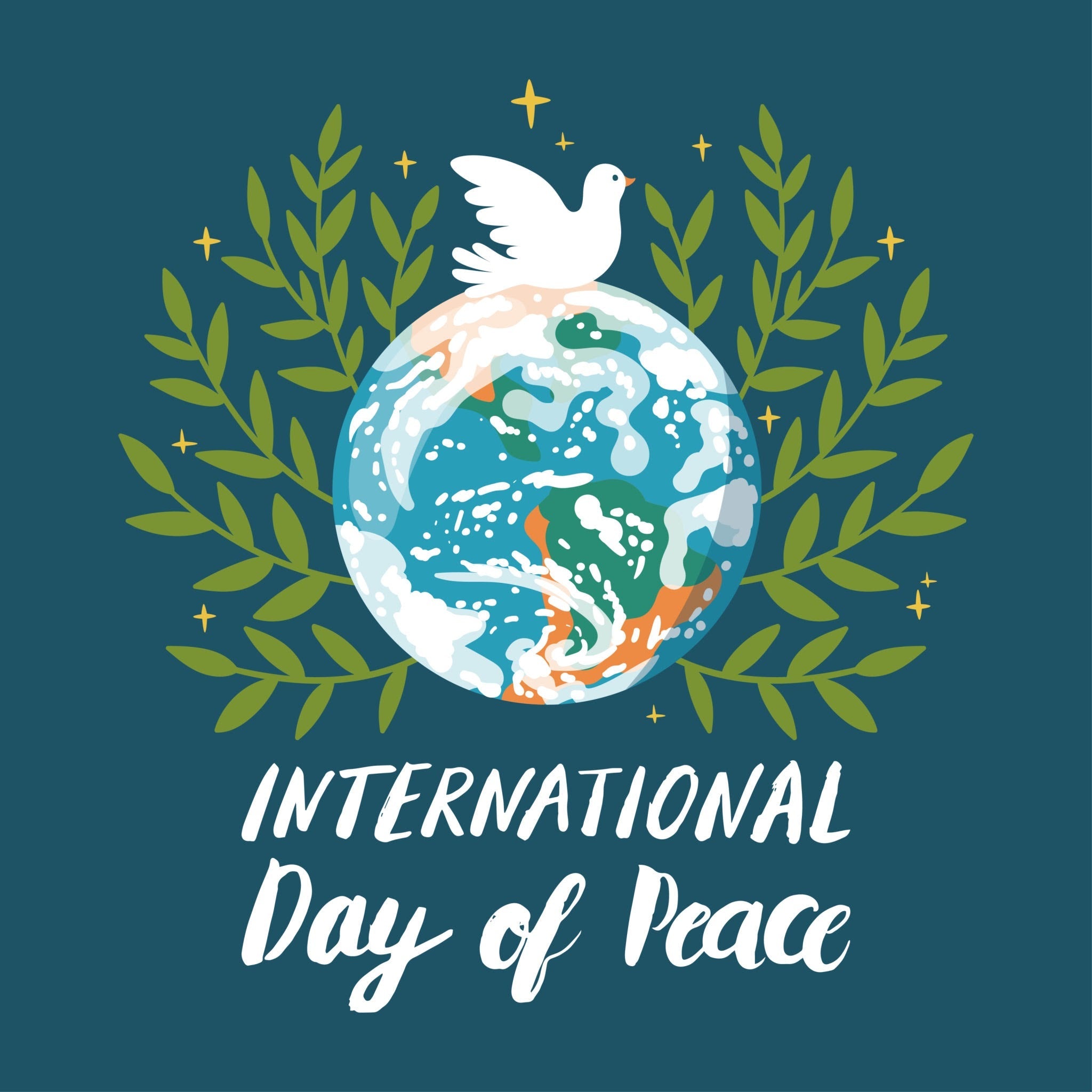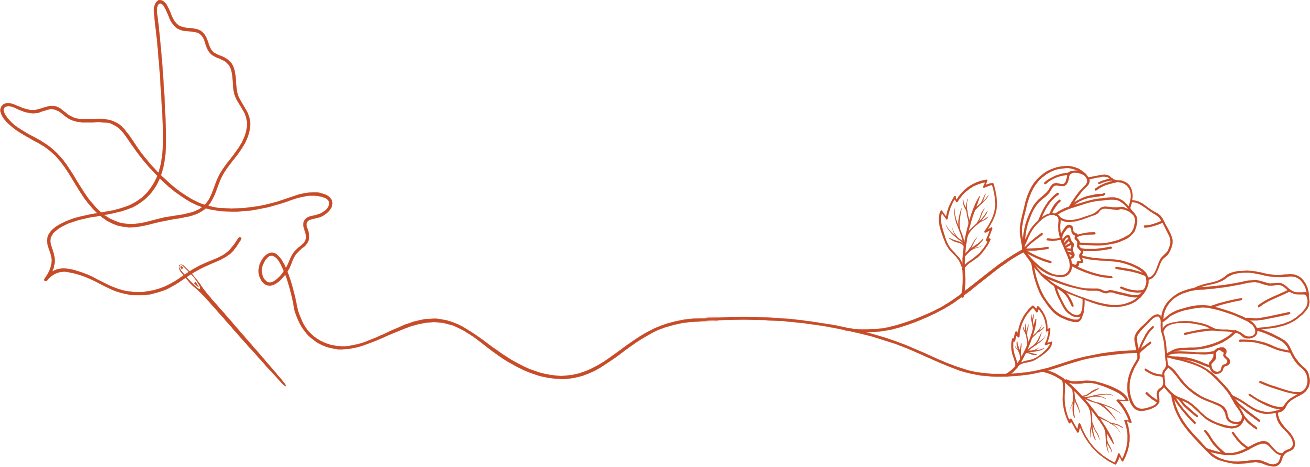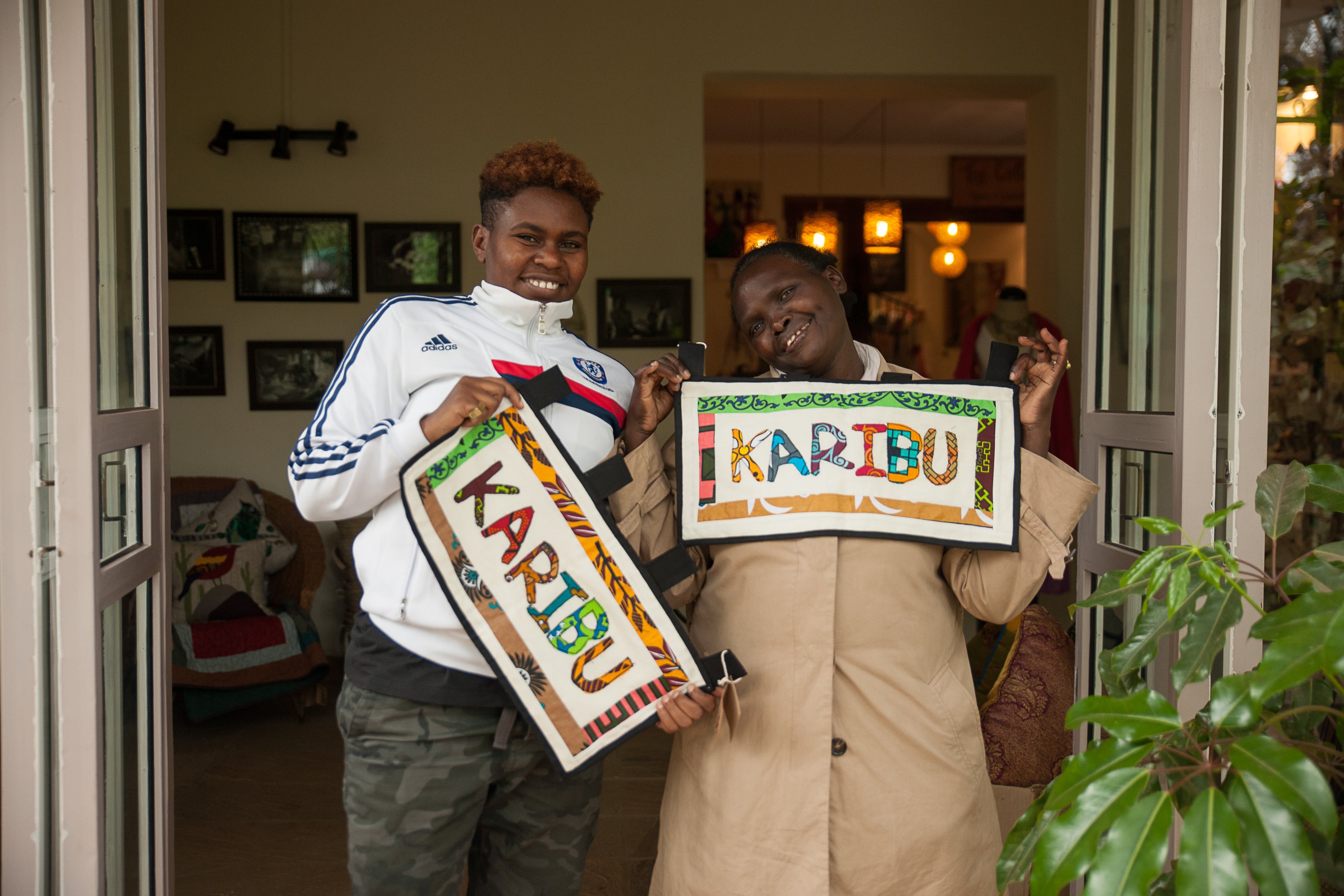Samantha Hinkle is a Wheaton College student from Texas. As an International Relations major, her academic focus is on the Great Lakes region of Africa, and she is particularly passionate about development in post-conflict settings, women’s issues, and property rights. Samantha is in the midst of a six-month internship at the Amani center in Nairobi, Kenya. The following is a reflection she recently posted on her personal blog.
[caption id="attachment_979" align="aligncenter" width="500"]

Samantha with a few of the Amani ladies from the Great Lakes region of Africa[/caption]
For the past four months, I’ve spent quite a bit of time eating lunch underneath the avocado tree here at Amani.
I think I’ve found my spot out of habit -- there is a nice bench, shade, and most importantly, refugees from the Great Lakes
region tend to congregate there. So naturally, that’s the place I am going to be.
A few days ago I was eating lunch, talking about nothing in particular with some the women, when I spotted a new trainee getting lunch. I met her earlier that morning; she is a young Congolese refugee. Her story is one of pain and suffering, but ultimately one that speaks of her incredible resilience and fight for survival.
I noticed she came down for lunch later than everyone else and made a spot for herself with her daughter a good distance away from the rest the women. I immediately thought to myself, “I have to go over there. I have to move so she doesn’t sit alone.” Before I had the chance to even move my plate from my lap, two Congolese women coming to sit near the avocado tree saw the new girl and chose instead to sit with her.
I don’t know what they talked about, if they knew each other, or even if they will become good friends. What I do know is that this seemingly inconsequential event has beautiful implications. I’ve found that the moments that appear the most insignificant are often the ones that truly transform us. It is in the small moments that healing, reconciliation, and forgiveness spring to life, like the fat avocados that grow out of trees.
In the past, my conversations on reconciliation and forgiveness in Africa were centered on large scale political change, like power-sharing agreements and Hague convictions. But sincere reconciliation and forgiveness has to take place on a personal level if healing is going to occur. Reconciliation with our pasts and futures comes through everyday choices, and it’s a long process. A significant part of healing involves welcoming others to join the messy journey towards restoration. Westerners often view healing as an individual process. Instead, we should recognize that we were created to live in communities rooted in compassion and solidarity. Thus, it is in walking alongside each other that our humanity grows into fullness. What better place to begin than with a fellow refugee on a lunch break, with a friend on a study break, or with a friend from church.
About a month or so into my internship my supervisor told me, “Let people care for you here; it’s only when you allow people to care for you that you can truly care for others.” Those words have followed me throughout my time here. I have witnessed these women reach out to each other, and I have experienced their care myself.
Care often happens in small moments -- in the long hugs, in the way some of the women grab my hand and hold it as we walk together, in the bouts of encouragement -- of unmerited affection and love.
It’s in all of these seemingly trivial moments, like the conversations and small events I witness while sitting underneath that silly avocado tree, that healing occurs.
 Samantha with a few of the Amani ladies from the Great Lakes region of Africa[/caption]
For the past four months, I’ve spent quite a bit of time eating lunch underneath the avocado tree here at Amani.
I think I’ve found my spot out of habit -- there is a nice bench, shade, and most importantly, refugees from the Great Lakes region tend to congregate there. So naturally, that’s the place I am going to be.
A few days ago I was eating lunch, talking about nothing in particular with some the women, when I spotted a new trainee getting lunch. I met her earlier that morning; she is a young Congolese refugee. Her story is one of pain and suffering, but ultimately one that speaks of her incredible resilience and fight for survival.
I noticed she came down for lunch later than everyone else and made a spot for herself with her daughter a good distance away from the rest the women. I immediately thought to myself, “I have to go over there. I have to move so she doesn’t sit alone.” Before I had the chance to even move my plate from my lap, two Congolese women coming to sit near the avocado tree saw the new girl and chose instead to sit with her.
I don’t know what they talked about, if they knew each other, or even if they will become good friends. What I do know is that this seemingly inconsequential event has beautiful implications. I’ve found that the moments that appear the most insignificant are often the ones that truly transform us. It is in the small moments that healing, reconciliation, and forgiveness spring to life, like the fat avocados that grow out of trees.
In the past, my conversations on reconciliation and forgiveness in Africa were centered on large scale political change, like power-sharing agreements and Hague convictions. But sincere reconciliation and forgiveness has to take place on a personal level if healing is going to occur. Reconciliation with our pasts and futures comes through everyday choices, and it’s a long process. A significant part of healing involves welcoming others to join the messy journey towards restoration. Westerners often view healing as an individual process. Instead, we should recognize that we were created to live in communities rooted in compassion and solidarity. Thus, it is in walking alongside each other that our humanity grows into fullness. What better place to begin than with a fellow refugee on a lunch break, with a friend on a study break, or with a friend from church.
About a month or so into my internship my supervisor told me, “Let people care for you here; it’s only when you allow people to care for you that you can truly care for others.” Those words have followed me throughout my time here. I have witnessed these women reach out to each other, and I have experienced their care myself. Care often happens in small moments -- in the long hugs, in the way some of the women grab my hand and hold it as we walk together, in the bouts of encouragement -- of unmerited affection and love.
It’s in all of these seemingly trivial moments, like the conversations and small events I witness while sitting underneath that silly avocado tree, that healing occurs.
Samantha with a few of the Amani ladies from the Great Lakes region of Africa[/caption]
For the past four months, I’ve spent quite a bit of time eating lunch underneath the avocado tree here at Amani.
I think I’ve found my spot out of habit -- there is a nice bench, shade, and most importantly, refugees from the Great Lakes region tend to congregate there. So naturally, that’s the place I am going to be.
A few days ago I was eating lunch, talking about nothing in particular with some the women, when I spotted a new trainee getting lunch. I met her earlier that morning; she is a young Congolese refugee. Her story is one of pain and suffering, but ultimately one that speaks of her incredible resilience and fight for survival.
I noticed she came down for lunch later than everyone else and made a spot for herself with her daughter a good distance away from the rest the women. I immediately thought to myself, “I have to go over there. I have to move so she doesn’t sit alone.” Before I had the chance to even move my plate from my lap, two Congolese women coming to sit near the avocado tree saw the new girl and chose instead to sit with her.
I don’t know what they talked about, if they knew each other, or even if they will become good friends. What I do know is that this seemingly inconsequential event has beautiful implications. I’ve found that the moments that appear the most insignificant are often the ones that truly transform us. It is in the small moments that healing, reconciliation, and forgiveness spring to life, like the fat avocados that grow out of trees.
In the past, my conversations on reconciliation and forgiveness in Africa were centered on large scale political change, like power-sharing agreements and Hague convictions. But sincere reconciliation and forgiveness has to take place on a personal level if healing is going to occur. Reconciliation with our pasts and futures comes through everyday choices, and it’s a long process. A significant part of healing involves welcoming others to join the messy journey towards restoration. Westerners often view healing as an individual process. Instead, we should recognize that we were created to live in communities rooted in compassion and solidarity. Thus, it is in walking alongside each other that our humanity grows into fullness. What better place to begin than with a fellow refugee on a lunch break, with a friend on a study break, or with a friend from church.
About a month or so into my internship my supervisor told me, “Let people care for you here; it’s only when you allow people to care for you that you can truly care for others.” Those words have followed me throughout my time here. I have witnessed these women reach out to each other, and I have experienced their care myself. Care often happens in small moments -- in the long hugs, in the way some of the women grab my hand and hold it as we walk together, in the bouts of encouragement -- of unmerited affection and love.
It’s in all of these seemingly trivial moments, like the conversations and small events I witness while sitting underneath that silly avocado tree, that healing occurs.





Leave a comment
This site is protected by hCaptcha and the hCaptcha Privacy Policy and Terms of Service apply.